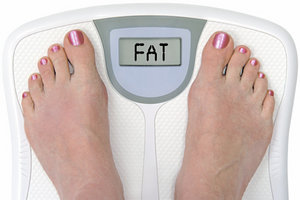Exercise and Heart Disease: Weighing the Evidence
By Editorial Staff
What matters more when it comes to reducing the risk of developing heart disease- exercising or maintaining a healthy weight? It's a controversial question that has researchers on both sides of the aisle talking.
Steven N. Blair, PED, a leading researcher from the University of South Carolina, has been a longtime proponent of what he calls the "fit and fat" theory. He has tested more than 10,000 people using a treadmill exercise test and found that level of physical fitness is an important factor in determining risk for dying from cardiovascular disease - more important than weight, age, cholesterol level, systolic blood pressure or fasting blood glucose level, among other factors. If you are more physically fit, you are at a lower risk for dying from a heart attack.
However, a study published in the April 28, 2008 issue of the Archives of Internal Medicine challenges Blair's theory. Researchers from Beth Israel Deaconess Hospital, Brigham Women and Children's Hospital and the Harvard School of Public Health conducted a study involving more than 38,000 women to evaluate the joint effect of exercise and body mass index (BMI)* on risk for heart disease.
Contrary to Blair's findings, they discovered that while exercise will lower the risk of heart disease in women considered overweight or obese, according to the BMI, it doesn't completely eliminate the risk. They recommended being "lean and physically active."
 "It doesn't take away the risk entirely. Weight still matters," said Dr. Martha Gulati, a heart specialist at Northwestern Memorial Hospital, in an interview with CNN.com.
"It doesn't take away the risk entirely. Weight still matters," said Dr. Martha Gulati, a heart specialist at Northwestern Memorial Hospital, in an interview with CNN.com.
What's it all mean? Despite the differing results, both studies emphasize the role of exercise in reducing the risk of heart disease. So whether it's biking, hiking or just taking the dog for a walk, get out there and get moving!
*Note: Bear in mind that BMI is only one indicator of unhealthy weight. Most BMI calculators account neither for body type nor muscle mass, which weighs more than fat.

